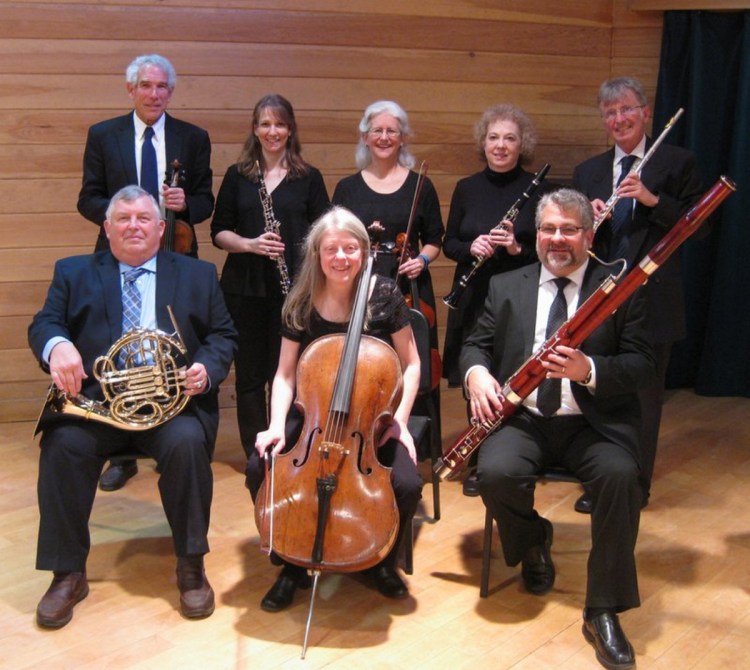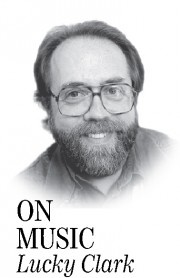Every once in a while, an interview comes along that proves to be a real eye-opener; such is the case with this week’s column. I try to feature the concerts at Jewett Hall every chance I get because I love the venue, and their series of monthly performances are musically varied and feature local talent, for the most part.
When I learned that some ensembles from the Augusta Symphony were performing there in early February, I immediately requested an opportunity to chat with a member of that organization to learn more about a local orchestra of which I was sadly unaware, and ended up calling Kristi Mann to become enlightened.
Am I calling Augusta?
Mann: No, you’re calling Rockport. I live in Rockport and commute over to Augusta to play in the symphony and be involved in that.
Can you talk a little bit about the ensembles that are coming to Jewett on the eleventh of this month?
Mann: Sure. The people that run Jewett Hall’s concert series contacted one of the other board members and wanted to know if the Augusta Symphony had any ensembles that would like to perform in a concert for them. We all talked about it and decided on a string trio. And then some of the woodwinds play together in other venues here and there, and so we asked them if they wanted to do something. So they got together a quintet. That’s sort of how it became.
Are you a performer or a member of the board?
Mann: I’m Principal Cellist; and our violist (Sydney Sewall) is Principal Violist; and our violinist (Mary Ellen Tracy) is Principal Second Violin.
So that’s the string trio, but you also mentioned a quintet?
Mann: A woodwind quintet, right. For that, the French horn (Lee Lenfest) is the Principal French Horn; the Principal Oboist (Necia Chaparin) is oboe; the flute player (Chris Lansley) shares the principal role because we have too many flutes for them all to play in one concert unless we need a piccolo. They divide up the year, and a couple of them each play principal for different concerts. Our Principal Bassoonist (Louise Foxwell) is actually playing clarinet; and then our Second Bassoonist (Chris Falcone) is playing bassoon.
About the program, who’s going to perform first at the show?
Mann: The trio will be playing the first half of the program, and we are playing Beethoven’s String Trio No. 1, Opus 3. And the quintet are actually playing a variety of smaller pieces. This particular trio has six movements, so it’s fairly lengthy in and of itself, and so that’s all that we’re doing — just the one piece. The quintet is playing, when compared to ours, probably some lighter music. Theirs isn’t quite the strict classical like Beethoven is.
Well, that gives a nice overview of classical music for the audience, I would think.
Mann: Yes, and so it’s really exciting to be doing this performance. The Symphony is not well-known, unfortunately, in Augusta. Most people don’t even know that there’s a symphony there.
I knew nothing about this one in Augusta.
Mann: Right, and it’s sort of strange because it will be celebrating 100 years in the year 2020.
How long have you been with the Symphony?
Mann: Um, I joined about eight years ago or so. I started out as a cellist and worked my way up to Principal Cellist. I’m also President of the Symphony right now.
How many performances does the ASO put on in the course of a year?
Mann: They do two concerts, one in the fall and one in the spring, and then they do a Messiah sing-a-long in December. For a few years, we were doing a late February/early March concert, but we found that with the weather and stuff it was just really hard to do. So we put that one on hold for a while. You see, most of us commute. There’s not a whole lot of the players that live locally, and our conductor, Paul Ross, also commutes. But then in May, we do a joint concert with the Maine Youth Orchestra, and Paul Ross is the conductor for the Youth Orchestra as well so there’s a fairly strong connection between the two.
Where do you perform?
Mann: We actually practice and perform out at Snow Pond in Sidney. We hope, though, that by 2020 we can find a place in Augusta to play. That’s one of our big goals.
How many members of the orchestra are there?
Mann: It all depends on the music we’re playing, but I would say between 40 and 50.
Wow, that’s a sizable orchestra.
Mann: Yeah, but we’re lacking in strings; we need strings. We have, with the exception of one instrument, a full brass and wind section.
Well, when all’s said and done, this will definitely be the first time that your organization has performed at Jewett Hall.
Mann: Yes, and it’s the first time that we’ve had small ensembles represent the orchestra, too. So we’re hoping that we can continue to perform in other places or other venues, with time permitting, I mean. None of us are professional musicians. We all have our day jobs that we go off to, but it would be fun to play for some other things. And also we’re hoping that this will promote other ensembles to form within the symphony. It’s just the beginning of what we could be doing with the members that we have.
So as you close in on the hundredth year, you’re still growing and developing. That’s always a good thing.
Mann: Yes, you are right. And this year, the board is busy writing grants, fundraising and we’ve changed our concerts.
Is there anything you’d like to pass on to the readers of this article?
Mann: I think all of us, and I’m speaking for the eight musicians that will be performing, really have a strong love for music and for playing for people. And we want to get the word out that there is an Augusta Symphony. I mean, that is part of our reason for doing this. It’s another opportunity to actually tell people about the symphony.
Lucky Clark has spent 49 years writing about good music and the people who make it. He can be reached at luckyc@myfairpoint.net if you have any questions, comments or suggestions.
Send questions/comments to the editors.



